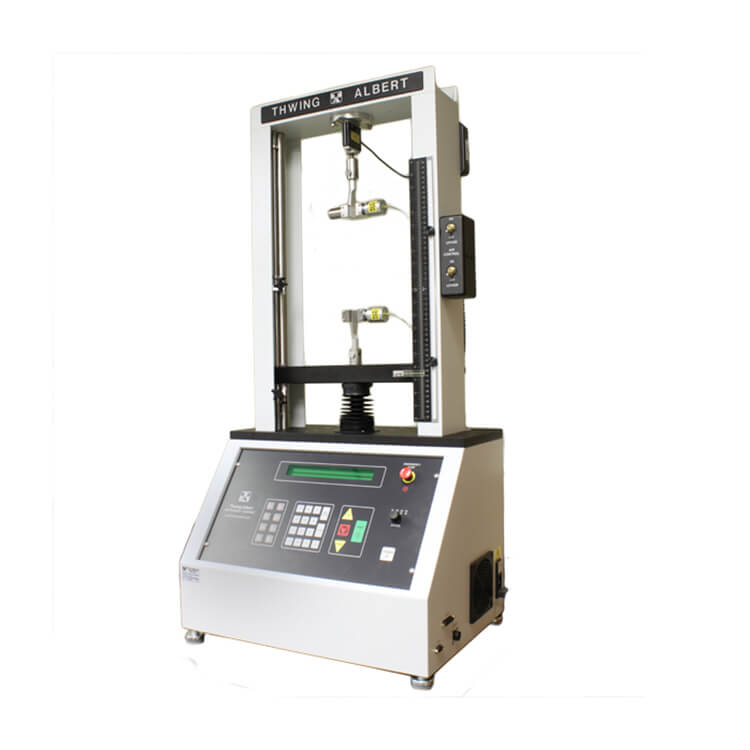Precise Analysis: Discover the Power of Our Materials Test Lab
Wiki Article
Precision Testing of Products for Toughness and Durability
Precision testing of materials for toughness and longevity plays a vital role in various sectors, consisting of building and construction, engineering, and production. This process involves subjecting different products to strenuous evaluations to determine their capacity to endure exterior forces and keep their honesty in time.On the planet of materials testing, precision is critical. Designers and scientists rely upon reputable and accurate data to make educated choices about material choice, style optimization, and item performance. By using advanced testing techniques and advanced tools, professionals can assess the strength and toughness of a large range of materials, such as metals, ceramics, composites, and polymers.
This introduction will offer understandings into the significance of accuracy testing, the kinds of materials frequently based on screening, the vital specifications for toughness examination, and the techniques used for toughness evaluation. It will additionally highlight the applications and advantages of carrying out precision screening in numerous industries.
Significance of Precision Testing
Accuracy screening is a crucial action in evaluating the stamina and longevity of products, offering trusted and accurate data for educated decision-making. The top quality and efficiency of materials play a critical role in making certain the safety and long life of items and structures when it comes to production and construction sectors. Consequently, carrying out precision screening is of utmost value to identify whether the products meet the needed standards and requirements.By subjecting materials to rigorous screening producers, engineers and procedures can examine their mechanical residential or commercial properties, such as tensile toughness, solidity, and impact resistance. This information allows them to make certain that the materials can endure used forces and ecological conditions without failure or destruction gradually. Furthermore, precision screening assists determine any potential defects or weaknesses in the products, enabling suppliers to make essential enhancements or alterations to enhance performance and dependability.
Furthermore, precision testing offers objective and measurable information that can be utilized to make and contrast different products educated choices regarding their suitability for specific applications. When picking materials for crucial components or frameworks where failure might have severe effects., this info is especially useful.
Sorts Of Products Subjected to Testing
Numerous products go through screening for stamina and toughness. This screening is important to ensure that the products can withstand the needs of their intended applications and to identify their anticipated life-span. The types of materials subjected to screening are varied and consist of metals, polymers, porcelains, composites, and building materials.Metals, such as steel and aluminum, are frequently tested for their tensile strength, solidity, and resistance to rust. materials test lab. These tests assist establish their viability for use in architectural applications, equipment, and various commercial procedures

Ceramic products, such as porcelain and ceramic floor tiles, are evaluated for their compressive strength, warmth resistance, and durability. These examinations make sure that ceramics can endure extreme environments and high temperature levels, making them suitable for applications in the building, electric, and aerospace markets.
Composites, which are materials made from a combination of various elements, are subjected to numerous examinations to analyze their mechanical residential or commercial properties, such as toughness, tightness, and effect resistance. browse around this site Composite materials are commonly used in sectors such as aerospace, automobile, and sports equipment production.
Building and construction materials, including asphalt, concrete, and wood, go through screening to identify their load-bearing ability, toughness, and resistance to weathering. These tests are essential in ensuring the security and durability of bridges, structures, and roads.
Secret Parameters for Stamina Analysis
One of the key criteria for stamina evaluation is the tensile stamina, which measures a product's ability to stand up to pulling forces without breaking or flawing. An additional essential parameter is the compressive toughness, which examines a product's resistance to squashing or being pressed together. By assessing these crucial parameters, engineers and scientists can properly analyze the toughness and toughness of materials, enabling them to make educated decisions in different industries such as aerospace, auto, building and construction, and production.

Methods for Toughness Analysis
Toughness assessment techniques are vital for reviewing the lasting performance and dependability of products. These methods are critical in figuring out the capability of products to stand up to different ecological resource problems and mechanical tensions over extended periods of time.One more technique is cyclic screening, which involves subjecting materials to repeated loading and unloading cycles. This assists examine the material's exhaustion resistance and its capacity to endure repeated stress without failure. By examining the stress-strain reaction of the product throughout cyclic screening, scientists can identify prospective powerlessness and review the material's toughness.
Moreover, non-destructive screening techniques such as ultrasonic testing and infrared thermography can be utilized to analyze the inner honesty and spot any kind of flaws or damage in the product. These strategies supply important information concerning the product's longevity without creating any damage to it.
Applications and Advantages of Precision Screening
Accuracy screening plays a vital duty in evaluating the strength and durability of materials, allowing designers and researchers to obtain exact and trusted data for examining their efficiency. The applications of accuracy screening are comprehensive and can be found throughout numerous sectors, consisting of aerospace, automobile, construction, and production.Among the vital advantages of accuracy testing is its capability to determine prospective weaknesses or flaws in products. By subjecting materials to rigorous and regulated testing, any kind of defects or vulnerabilities can be found before they result in devastating failings. This enables makers to make essential renovations or adjustments to enhance the overall quality and sturdiness of their items.
Accuracy testing also aids in determining the optimum layout and make-up of materials. By testing different variations and setups, designers can identify one of the most suitable materials for certain applications. This brings about improved effectiveness, performance, and cost-effectiveness in different industries.
Additionally, precision testing Bonuses supplies beneficial information for the growth and improvement of materials and making procedures. materials test lab. It allows scientists to get a deeper understanding of product habits under different conditions, bring about the growth of brand-new materials with improved efficiency, toughness, and sturdiness attributes
Final Thought
In conclusion, precision screening plays an essential role in examining the strength and durability of products. By subjecting numerous types of materials to rigorous testing, crucial parameters for toughness assessment can be identified.Precision testing is a necessary action in assessing the stamina and longevity of products, offering dependable and precise information for informed decision-making.Different products are subjected to testing for toughness and toughness. The types of materials subjected to testing are diverse and consist of steels, polymers, porcelains, composites, and building materials.
By evaluating the stress-strain feedback of the material during cyclic screening, scientists can determine possible weak factors and evaluate the product's resilience.
In verdict, accuracy screening plays a vital duty in examining the stamina and durability of products.
Report this wiki page